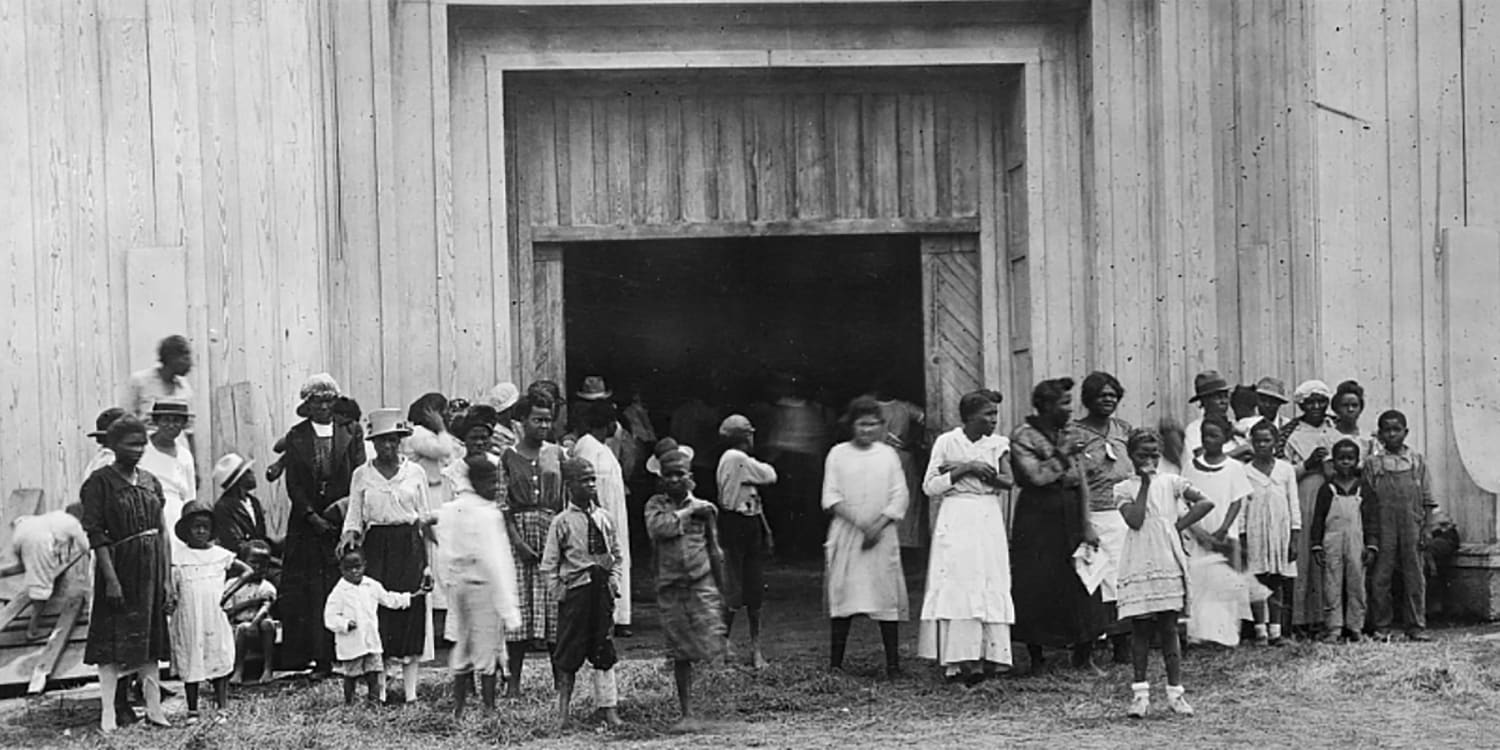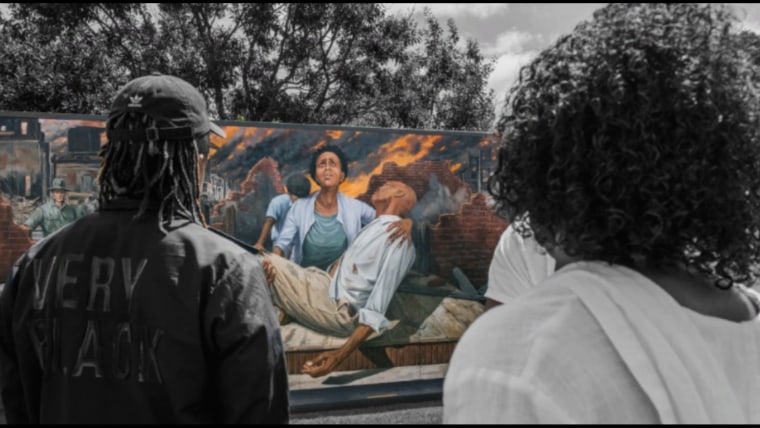Tuesday marks 100 years since the 1921 Tulsa Race Massacre — an act of city-sanctioned white violence that murdered up to 300 Black men, women and children, destroyed the Black neighborhood of Greenwood in Tulsa, Oklahoma, and then was erased from history.
At 107 years old, Mother Fletcher, the oldest living survivor of the massacre, has waited long enough for justice.
Before a white mob tore into Greenwood, it was a safe haven for Black people to live and thrive. It was known as Black Wall Street — a testament to its cultural, social and economic strength.
My grandfather Raymond Beard Sr. and great-aunt and great-uncle, Mary and Matthew Beard, lived and worked in Greenwood. Thankfully, they survived the massacre, but they didn’t escape unscathed. My family’s home and laundry business were burned to ashes.
We learned later that my great-uncle and great-aunt fled to Los Angeles, where they changed their first names to conceal their identities. Like many survivors, they carried the weight of the massacre for the rest of their lives, unable to shake flashbacks and memories of screaming, the smell of smoke and fire, the image of white men murdering Black people right in front of their eyes.
Meanwhile, local and state officials destroyed documentation of the massacre, newspaper records were deleted, and the perpetrators and aggressors established a culture of silence. A full century after the massacre, no one has been held accountable, and neither the last known living survivors nor my family and other descendants are any closer to justice.
Today, the Greenwood community is held back in nearly every measure, including health, education, jobs, economic opportunity, housing and criminal justice. Black youths are three times more likely to be arrested than white youths in Tulsa. The presence of more payday lenders and fewer banks and credit unions in North Tulsa, where the majority of Black Tulsans live, limits our ability to accumulate wealth. The Black infant mortality rate in Tulsa is almost three times that of white Tulsans.
We cannot tolerate the consequences of the Tulsa Race Massacre any longer, so I recently joined the last three living survivors of the massacre, as well as other descendants, to testify before the House Judiciary Committee. We are calling for reparations to address the pain and trauma still felt by our community.
The best way to unravel the traumas inflicted by this nation starts with an honest reckoning of systemic racism through passage of H.R. 40. Introduced by Rep. Sheila Jackson Lee, D-Texas, this bill is a transformative framework to begin a national conversation focused on acknowledging, studying, confronting and atoning for our dark history. It would establish a commission to examine slavery and discrimination and their impacts from 1619 to today, as well as develop reparation proposals.
While critics may be quick to write off this proposal as too expensive or too politically charged, they clearly do not grasp the magnitude of current traumas shouldered by the Black community.
At 107 years old, Mother Fletcher, the oldest living survivor of the massacre, has waited long enough for justice. She lost her chance to have an education after the massacre, never finishing school past the fourth grade. To this day, she struggles to afford her basic everyday needs and has flashbacks of the screams, the Black bodies lying in the street, the neighborhood businesses burning. The clock is ticking to ensure that she receives reparations in her lifetime.
In October, I stood in the trench of a mass grave at Oaklawn Cemetery in Tulsa as part of my duties as a member of the city’s Mass Graves Investigation Public Oversight Committee. As we uncovered 12 coffins, I noticed a smaller box about the size of a woman’s hat box. The Tulsa Race Riot Commission report concluded that inside was most likely a stillborn baby.
These bodies weren’t embalmed, and their death certificates weren’t even signed by a medical examiner. They were thrown away like garbage. I walked away from this grave and wept for the soul of this child and the mother who would never know her baby’s whereabouts, lost both in the womb and in the earth.
Time has not and will not heal these wounds. The only way to truly move forward is to tackle the darkness of our past head on. As we approach the centennial of the 1921 Tulsa Race Massacre, there can be no better way to honor the survivors and descendants than by passing H.R. 40 to begin a long overdue national reckoning.
Source: | This article originally belongs to Nbcnews.com











